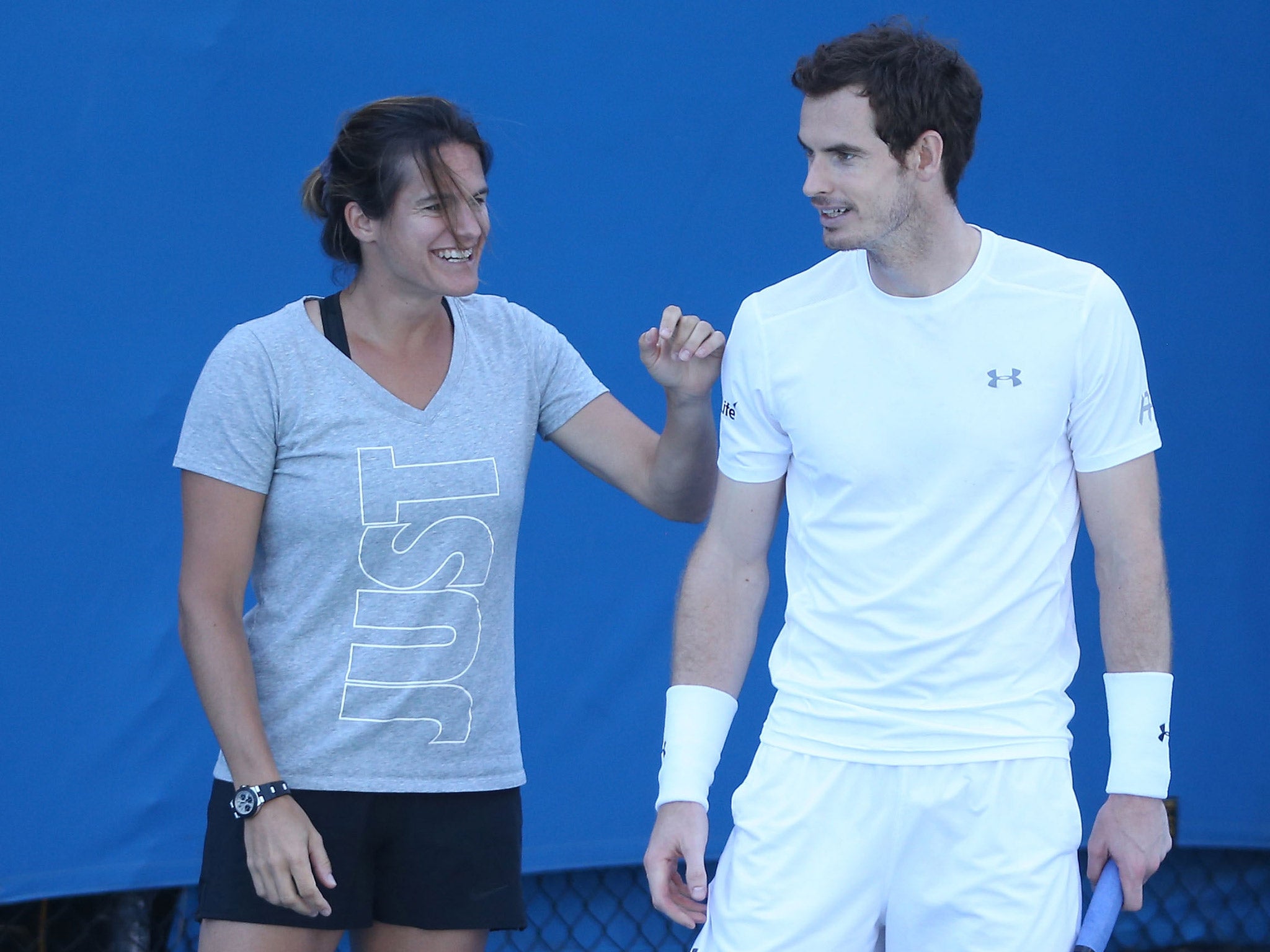Andy Murray split was due to his on-court behaviour, reveals Amelie Mauresmo
Murray and Mauresmo ended their two-year partnership earlier this month with the former women's world No 1 admitting that Murray is a 'complex' person

Amelie Mauresmo has hinted that Andy Murray’s on-court behaviour was a factor in their parting earlier this month. In an interview on the eve of the French Open with the Paris-based sports newspaper L’Equipe, Mauresmo said that the split had come at a time when she felt she could not do any more for him.
“Andy is complex,” the coach said when asked if his on-court behaviour had been the reason for the end of their two-year partnership. For most of his career Murray has scowled and ranted in the general direction of his entourage during matches, though he has regularly insisted that nothing should be read into his behaviour.
“On court he can be the opposite to how he is off it,” Mauresmo said. “That can be disconcerting. I was there to help him, but I had the feeling that I couldn’t move things forward any more.”
Mauresmo said she did not want to go into details about the reasons behind the split but added that “everyone could see certain things”. When L’Equipe asked whether she was referring to the curious episode this year in Miami, where Mauresmo watched one of his matches away from the player box where the rest of his coaching team were sitting, she said: “I didn’t want to be there any more. I wanted to try something.”
Although the end of the relationship was announced less than a fortnight ago, Mauresmo said the split had been on the cards for a while. Following the birth of her first child in August, the Frenchwoman had made different arrangements with Murray this year, as a result of which she was spending less time on the road with him. Her absence coincided with the Scot’s poor run of form in March, when he made early exits from the Masters Series tournaments at both Indian Wells and Miami.
Mauresmo said she had got the impression that they had arrived “at the end of what we could do professionally”. She explained: “We concluded that it was going to be complicated to carry on. Since the Australian Open I had slightly cut down the number of weeks that I would be with him and we actually spent very little time together after that.
“It turned out to be a difficult period for him and I was unable to help him. But we had started to make that decision [to end the coaching relationship] some time before that.”
Australian Open: Andy Murray vs Novak Djokovic in pictures
Show all 12Nevertheless, Mauresmo said she had been proud of what they had achieved together. “A woman coaching a man brought down some barriers in what is a very masculine world,” she said.
She said the relationship had worked well thanks to “respect and a lot of communication”. She had particularly good memories of this time last year, when Murray made great steps forward on clay, winning his first titles on the surface and reaching the semi-finals of the French Open.
He is very curious, always wanting to learn more - and that is what makes great champions
“I liked the way we worked,” she said. “I liked working with his team. Andy is someone who has a great capacity to listen and to analyse. He is very curious, always wanting to learn more - and that is what makes great champions.”
Mauresmo said she had agreed to coach Murray because she felt she would be able to help him with “three-quarters of the things that he wanted from me”.
She added: “He was having trouble communicating. He needed to find someone who was better able to listen to him. He also wanted to play further up the court and to be more aggressive. That was something that appealed to me. And he thought that with a woman he would be able to confide a little bit more.”
Mauresmo said that Murray had helped to teach her how to handle pressure. “He acquired great mental strength with the number of Grand Slam finals that he lost at the start,” she said.
Asked if she wanted to continue coaching, Mauresmo said: “I don’t know. We’ll have to see. When, how, who with….”
Subscribe to Independent Premium to bookmark this article
Want to bookmark your favourite articles and stories to read or reference later? Start your Independent Premium subscription today.

Join our commenting forum
Join thought-provoking conversations, follow other Independent readers and see their replies